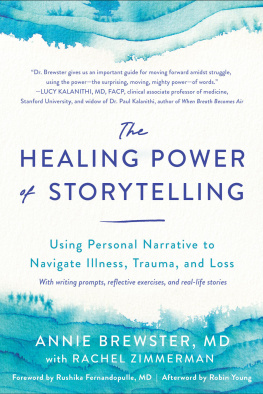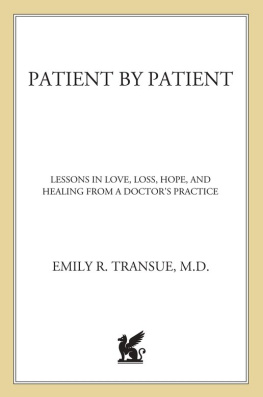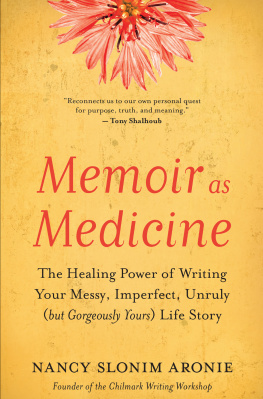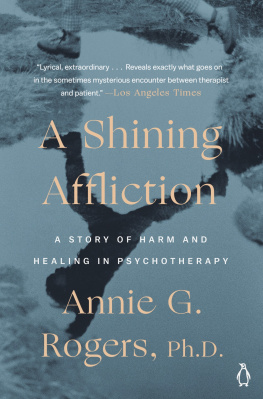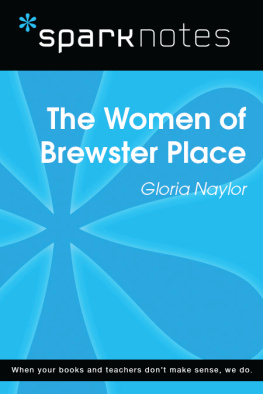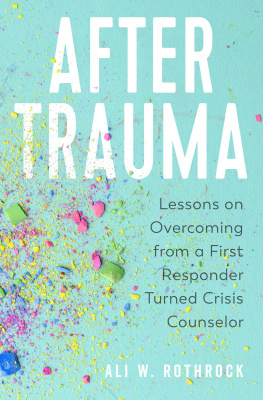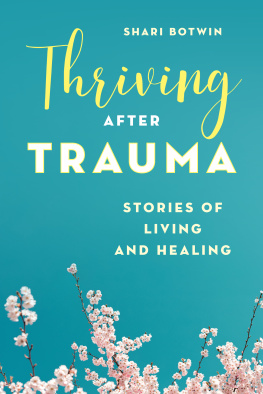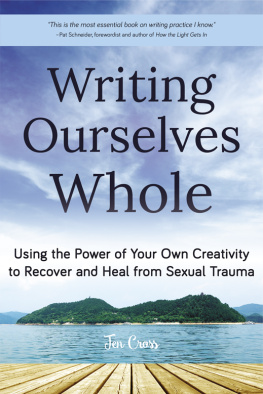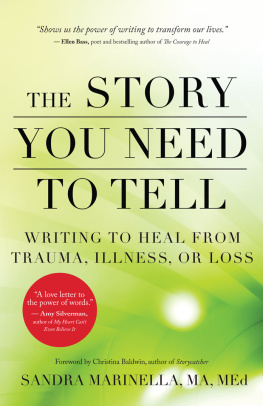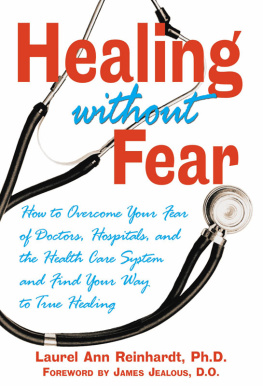
Copyright 2022 by Annie Brewster. All rights reserved. No portion of this book, except for brief review, may be reproduced, stored in a retrieval system, or transmitted in any form or by any meanselectronic, mechanical, photocopying, recording, or otherwisewithout the written permission of the publisher. For information contact North Atlantic Books.
Published by
North Atlantic Books
Huichin, unceded Ohlone land
aka Berkeley, California
Cover art Karinka BU/Shutterstock.com
Cover design by Mimi Bark
Book design by Maureen Forys, Happenstance Type-O-Rama
The Healing Power of Storytelling: Using Personal Narrative to Navigate Illness, Trauma, and Loss is sponsored and published by North Atlantic Books, an educational nonprofit based in the unceded Ohlone land Huichin (aka Berkeley, CA) that collaborates with partners to develop cross-cultural perspectives, nurture holistic views of art, science, the humanities, and healing, and seed personal and global transformation by publishing work on the relationship of body, spirit, and nature.
North Atlantic Books publications are distributed to the US trade and internationally by Penguin Random House Publishers Services. For further information, visit our website at www.northatlanticbooks.com.
MEDICAL DISCLAIMER: The following information is intended for general information purposes only. Individuals should always see their health care provider before administering any suggestions made in this book. Any application of the material set forth in the following pages is at the readers discretion and is their sole responsibility.
Library of Congress Cataloging-in-Publication Data
Names: Brewster, Annie, 1968- author.
Title: The healing power of storytelling : using personal narrative to
navigate illness, trauma, and loss / Annie Brewster, MD with Rachel
Zimmerman ; foreword by Rushika Fernandopulle, MD, MPP ; afterword by
Robin Young.
Description: Berkeley, California : North Atlantic Books, [2022] | Includes
bibliographical references and index. | Summary: A guide for using
personal narrative and storytelling to process traumatic medical events
and life-changing diagnoses-- Provided by publisher.
Identifiers: LCCN 2021038719 (print) | LCCN 2021038720 (ebook) | ISBN
9781623176693 (trade paperback) | ISBN 9781623176709 (ebook)
Subjects: LCSH: Narrative therapy.
Classification: LCC RC489.S74 B74 2022 (print) | LCC RC489.S74 (ebook) | DDC
616.89/165--dc23
LC record available at https://lccn.loc.gov/2021038719
LC ebook record available at https://lccn.loc.gov/2021038720
This book includes recycled material and material from well-managed forests. North Atlantic Books is committed to the protection of our environment. We print on recycled paper whenever possible and partner with printers who strive to use environmentally responsible practices.
Foreword
L ike Annie Brewster, I began my career as a primary care physician, trained at Harvard, and am still living in the Boston area. Also like her, I believe that stories can transform health care.
I remember a moment almost twenty years ago when I heard a well-respected health care pollster report that the majority of Americans didnt think it much mattered if people had health insurance, because they could always get care at a free clinic or emergency room. I knew this was absolutely false; thousands of academic studies show the link between a lack of insurance and higher rates of illness, suffering, and early death.
How could so many people not know this? Its because the majority of Americans dont make decisions based on data, no matter how abundant or compelling it may be. They make up their minds because of stories. Oprah didnt fill her popular show with PowerPoint slides and graphs; instead, she had a real person sit on her couch and tell their real story, usually a story that felt familiar to millions of other real people, who suddenly realized they were not alone. Its largely due to this disconnect between stories and data that a medical anthropologist colleague and I decided wed write a book together, beginning by traveling around the country collecting the stories of people who were uninsured. Only then, we believed, could we bring in the data and policy implications. What we realized later was that not only did these stories help move the needle on the policy side, but the very act of telling their own stories helped the uninsured folks we spoke to heal as well.
This important book by Annie Brewster and Rachel Zimmerman explores exactly this insightthat storytelling has a profound power both to heal the storytellers themselves and to effect change in the world. Annie starts with her own story as a physician who becomes a patient, and then she details how she turned her experience of healing through stories into a calling to help others tell their story. She and Rachel provide a number of specific examples of people who have benefitted from telling their stories, and they give practical tips on how anyone can put together their own story in a powerful way.
I have been in practice for well over twenty years and can readily attest to the importance of self-efficacy in healing; the very feeling that you have some control over your own health is a critical part of actually getting better. And being able to articulate your story, not just by telling the facts, but also by showing how these create meaningnot just the what but also the whycan create profound power for anyone. As Annie puts it succinctly, everyone has a story, and stories heal.
But the power of stories go far beyond just the personal. There is an epidemic of loneliness in our society, made much worse by the social distancing required in a global pandemic. Stories help us connect to each other, to realize we are not alone. Indeed, of the many group activities we run for patients at our practices, the most popular is one called Its My Story, in which patients simply get together and share their stories with each other. While we are each unique, it is easy to find common themes in our stories, and that binds us together.
And telling stories is a key part of not just healing ourselves as individuals but also healing our health care system. Like Annie, I got frustrated being a primary care doctor in our current system. Despite the ranks of largely good people with good intentions, we have turned the system into a series of transactions geared at doing more to people in a shorter time instead of healing. Being a primary care doctor today feels like the life of the gerbils I had as a child, running ever faster on a spinning wheel. Several years ago, after a long day seeing a never-ending stream of patientseach in ten minutes or lessI would have to spend hours after work finishing my notes to get the adequate billing credit so I wouldnt get yelled at for not meeting my productivity quotas. A colleague put it this way: Every day I lose a piece of my soul. We went into this to help people, and they come to us with so many needs, and we have so much we can offer, but the system simply doesnt let us do it. And it seems to be getting worse and not better.
So I decided to quit my day job and create a new model of care, one based on relationships, not transactions. It is a company, now called Iora Health, that runs about fifty practices in ten different cities across the country. And it is also a movement inspiring others to do the same. Our goal is simply to restore humanity to health care, for all the same reasons Annie and Rachel give in this book. And the goal is not just to build a health care practice (or even hundreds of them) but also to use these to profoundly challenge the system as a wholeand change it.
Next page
